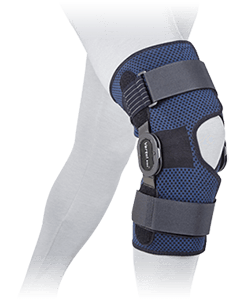Hearing about Typhoid fever has become very common nowadays. This particular fever is caused by a Bacteria called Salmonella Typhi.
Typhoid fever is still a significant threat to human lives in most developing countries. Especially for children, Typhoid fever has become a severe health problem.
The signs and symptoms of Typhoid fever are prevalent. Moreover, close contact with an already infected person and consuming contaminated food and water can even cause Typhoid fever. More symptoms are stomach ache, constipation, headache and even high fever.
Symptoms Of Typhoid Fever
The signs and symptoms of Typhoid fever take up gradual development. The changes in the body do not happen drastically. The symptoms are often seen after one to three weeks post-exposure to the disease.
Some common early signs of this illness are as follows:
- Sweating
- Dry cough
- Headache
- Lethargicness and weakness
- Fever starts low and increases daily
- Muscles pain
- Weight loss
- Loss of appetite
- Constipation
- Stomachache
- Swollen stomach
- rash
If proper treatment is not taken under the guidance of a specialised doctor, there are high chances that the disease might spread at an exponential rate.
That is why scouting for a good doctor is the need of the hour. This can even lead to a severe problem. Some later illness symptoms that the body might undergo without treatment are as follows:
- Staying in Typhoid state ( laying down motionless with half eyes open)
- Becoming delirious
Causes Of Typhoid Fever
A dangerous Bacteria by the name of Salmonella Typhi causes Typhoid fever. The Bacteria, Salmonella Typhi can cause Salmonellosis and other primary intestinal infections.
-
Fecal- Oral Transmission Route
The Fecal-oral transmission route is one potential way to transmit this disease. In most countries, people get infected with Typhoid fever bacteria while travelling or on transit. People who are already infected have the potential to infect others also.
-
Restroom Usage
The Typhoid fever bacteria can also be passed on through the infected person’s urine.
If we eat food handled or served by the Typhoid fever infected person who has not washed his hands right after using the restroom, there are high chances that we might even get infected.
That is why it is essential to abstain from them when in need.
-
Contaminated Food And Water
In many developed countries, people face the issue of Typhoid fever due to the consumption of contaminated food and water.
Drinking contaminated water, eating stale food or even eating food handled by someone who is already infected by the Typhoid fever bacteria can severely affect the health of the non-infected person.
-
Typhoid Carriers
There are chances that even after proper antibiotic treatment, few people might be the carriers of Typhoid fever bacteria.
They no longer possess any kind of signs or symptoms, but they are considered chronic carriers. Such types of people carry the potential to infect others who are not infected.
Risk Factors Associated With Typhoid Fever
Typhoid fever is a major threat to people of developed and developing countries. It is a very common yet a serious health issue for the human race.
Every year more than 27 million people are infected with Typhoid fever. The main countries in which this disease is established are Africa, India, South America and Southeast Asia.
The risk factors involved when living in a Typhoid fever infected country are as mentioned below:
- Having close contact with a person who is already infected with the Typhoid fever bacteria.
- Drinking contaminated water which contains Salmonella Typhi.
- Working or travelling to areas where Typhoid fever is established.
- Working as a Clinical Microbiologist and taking care of Salmonella Typhi bacteria .
Preventive Measures To Avoid Typhoid Fever
A person can help themselves get infected by the Typhoid fever bacteria if they take necessary preventive measures. Some common precautions like drinking safe water, improvised sanitation and proper medical care can help avoid getting infected by Salmonella Typhi.
Vaccinations
If a person is likely to travel to areas under a high risk of Typhoid fever, then the dosage of Typhoid fever vaccinations is recommended. There are two vaccines available:
- The first vaccine is provided as a single shot a week before the person is travelling.
- The second one is in the form of capsules. Four capsules are supposed to be taken every next day.
The Bottom Line
Typhoid fever can be one of the most dangerous diseases if one does not take care of themselves properly. The vaccinations for Typhoid fever are only partially effective.





